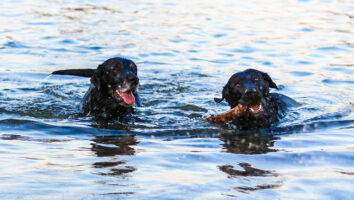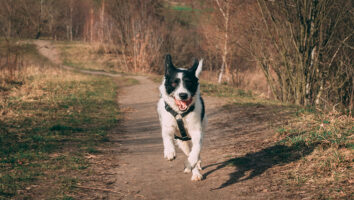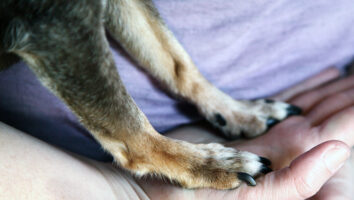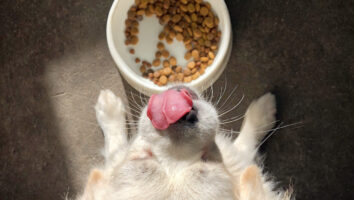Dog
Water tail syndrome in dogs
Dogs who like to swim or spend a long time in cold or wet weather can sometimes suffer from something called limber tail syndrome. There are many other names for this condition including: cold water…
Worming your dog - Q&A
How do you know if your dog has worms? And when should you worm your dog? Dogs are at risk of being infected with many different worms, including roundworms, tapeworms and lungworm. They can pick…
What is physiotherapy and how can it help my dog?
Physiotherapy helps to restore movement and function after an injury, illness or long-term disability. It also prevents and reduces the risk of injury or illness in the future. Veterinary…
Which mushrooms are dangerous to dogs?
Read our article to know more about how to recognise dangerous mushrooms, which signs they can cause if eaten by dogs and how to act in case of suspected poisoning.
Nail clipping - how to cut your dog's claws
It is important to cut your dog's claws regularly because long claws can increase the risk of injury. What should you keep in mind when cutting your dog's claws and how often should you cut them?…
Can my dog eat a vegan or vegetarian diet?
Technically yes, dogs can survive on both a vegan or vegetarian diet. However, there are some important things to understand to ensure that your dog gets the right nutrition for their age, size and…
What are digestive support diets for dogs and cats and when to use them
If your pet has tummy trouble, changing their food can help their stomach get better. But what should you feed? Read our article to understand what digestive support foods are and how to use them.
Help! My dog is eating poo
Coprophagia is the medical term for eating poo. Although an unpleasant behaviour, eating faeces is a problem behaviour we see in both puppies and adult dogs. It mostly occurs in puppies and young…
Conker poisoning in dogs
Conkers are the seed of the horse chestnut nut tree, a very common species in the UK, which are found lying on the ground in the autumn time. Similar to acorns, curious dogs may pick up conkers to…
Lameness in dogs
Dogs can become lame for many reasons, such as a wound, insect sting, sprain or fracture. Other causes include joint problems, such as osteoarthritis. In this article we talk about symptoms,…
What are dog food allergies?
Everybody has heard of food allergies by now or knows people who have them. Dogs can also get food allergies, but they like to do them differently than people. Read on to learn how to recognise them.
Lungworm infection in dogs
Lungworm (Angiostrongylus vasorum) is a life-threatening disease of dogs. The number of cases in the UK over the last few years seems to be rising. Our vet explains what signs you should look out…
Colitis in dogs - a common cause of diarrhoea
Colitis in dogs means that the patient is suffering from inflammation of the large intestine (colon). Many dogs will suffer from colitis at one stage in their lives and this is also a common puppy…
Vomiting vs regurgitation in dogs and cats - what is the difference?
All pet owners will know that vomiting is a common problem in dogs and cats. However, it is important to know the difference between vomiting and regurgitation. Regurgitation in dogs and cats has…
Drooling in dogs and cats
Drooling, or hypersalivation (ptyalism), is the result of overproduction of saliva or the inability to swallow the saliva being produced, or both. Drooling in pets can present as a mild complaint or…
Crate training for puppies
Puppies are often crate trained as part of an introduction to a new household. This can be an effective way of helping puppies to feel safe, secure and to prevent injury overnight. However, things…
Vomiting bile in dogs and cats - causes, signs and treatment
Dogs and cats vomit bile when they have no other food content in the stomach. This could be because there has been previous vomiting, or it may be that they have not eaten recently. Bile and gastric…
Help! My dog gets travel sickness
Travel sickness, also called car or motion sickness, can affect pets as much as humans. Any form of travel can trigger travel sickness- dogs may shake, drool, yawn excessively, vomit and in some…




















